Plot descriptions courtesy of imdb.com, Network DVD, and Renown Pictures. Our comments about the film then follow.
An Ideal Husband ( 1947 )
A prominent politician is preparing to expose a financial scandal. But then a woman who has invested heavily in the shady venture threatens to uncover a damaging secret in the politician's past if he exposes the speculation as a fraud. His problem is compounded by his wife's intolerance of the slightest character flaws.
"If we men married the women we deserved....we should have a very bad time of it."
Oscar Wilde's sparkling comedy comes alive in this delightful film adaption from Alexander Korda. Paulette Goddard is especially charming as the high-society snake-in-the-grass and the color photography is beautiful.
While I Live ( 1947 )
A young composer and pianist Olwen Trevelyan, troubled and sleepless over her inability to finish the final notes of her composition, falls to her death from the cliffs of Cornwall. As the years pass, Olwen’s sister Julia obsessively keeps her memory alive. The young composer gains posthumous fame because of her tragic death and her haunting, unfinished composition, “The Dream of Olwen.” 25 years later, still mourning the death of her composer sister Julia believes she has returned, reincarnated, in an amnesiac woman who chances upon her house seeking help… Contains the haunting music “The Dream of Olwen” composed by Charles Williams.
While I Live ( 1947 )
A young composer and pianist Olwen Trevelyan, troubled and sleepless over her inability to finish the final notes of her composition, falls to her death from the cliffs of Cornwall. As the years pass, Olwen’s sister Julia obsessively keeps her memory alive. The young composer gains posthumous fame because of her tragic death and her haunting, unfinished composition, “The Dream of Olwen.” 25 years later, still mourning the death of her composer sister Julia believes she has returned, reincarnated, in an amnesiac woman who chances upon her house seeking help… Contains the haunting music “The Dream of Olwen” composed by Charles Williams.
This one is indeed haunting, primarily because of its beautiful theme song and its spiritual plot. Sonja Dresdel, who stars as Julia, was a very talented actress who had a great career in films, television, and in theatre in England.
Shot down and badly injured over the Italian alps during the second world war, RAF pilot Richard Wilder (Michael Dennison) is rescued and nursed back to health by Alida (Valentina Cortese), a beautiful young Italian girl. As she shares with him the local fables of the Glass Mountain, they begin to fall in love.
This is another film that benefits greatly from its musical score. This one is written by Nino Rota who is most famous today for his love theme for Romeo and Juliet ( 1968 ). Michael Dennison ( The Importance of Being Earnest ) plays an earnest lover here and the setting of the picture is ideal.
The best bomb disposal officer during World War II was badly injured and is in frequent pain. He finds solace and relief from his pain in the whiskey bottle & the pills that are never far away. A new type of booby-trapped Nazi bomb pushes his nerves & resolution to the limit.
The Fast Lady ( 1962 )
Murdoch Troon (Stanley Baxter), a naive Scotsman, puts away his bicycle and attempts to woe the daughter (Julie Christie) of wealthy businessman Charles Chingford (James Robertson Justice) by way of impressing her with a vintage Bentley - The Fast Lady of the title.
The Fast Lady is a fun comedy with a great cast. Stanley Baxter made a number of films but none so entertaining as this one ( although the follow-up, And Father Came Too is quite enjoyable ).
Want to read more? We reviewed this film several years ago and you can read about it here.
Young and Willing ( 1962 )
Harry Brown ( Ian McShane ) is a somewhat rough student (the wild) at Kilminster University, who has the ability to win friends, especially the underdogs like Phil ( Sir John Hurt in his introductory movie role ) who doesn't play "rugger", and can't sink a whole pint of beer, and African student Reggie ( Johnny Sekka ). He also has a way with the girls ( the willing ), one of whom is his professor's wife ( Virginia Maskell ), who likes the students, but also her comfortable life with her boring husband more. After Harry is rebuffed, he takes up the challenge to hang a banner from the dangerously crumbling University tower. The rather weak Phil insists on being part of this escapade.
Ian McShane makes an impressive film debut as the young Harry Brown. Young and Willing ( also released under the title The Wild and the Willing ) is not a cheerful picture of university life ( if you want to see a more light-hearted film take a peek at Bachelor of Hearts with Hardy Kruger ) but it is very engrossing. Virginia Maskell was a fine actress of the 1960s who died much too young. She gives an impressive understated performance here as the prof's wife. Also in the cast is a young Samantha Eggar.
Scobie Malone ( Rod Taylor ), an Australian outback police detective is sent on a special assignment to the UK, to return an Australian citizen ( Christopher Plummer ) accused of murder. Only this is not an ordinary man, he is a UN high commissioner for peace talks taking place in London.
The Glass Mountain ( 1949 )
Featuring the peerless voice of legendary baritone Tito Gobbi, The Glass Mountain is a classic British film romance enriched with the sublime music of Italian opera.
Shot down and badly injured over the Italian alps during the second world war, RAF pilot Richard Wilder (Michael Dennison) is rescued and nursed back to health by Alida (Valentina Cortese), a beautiful young Italian girl. As she shares with him the local fables of the Glass Mountain, they begin to fall in love.
This is another film that benefits greatly from its musical score. This one is written by Nino Rota who is most famous today for his love theme for Romeo and Juliet ( 1968 ). Michael Dennison ( The Importance of Being Earnest ) plays an earnest lover here and the setting of the picture is ideal.
The Passionate Friends ( 1949 )
The Passionate Friends were in love when young but then separated. Mary Justin ( Ann Todd ) later married an older man. Then Mary meets Steven Stratton ( Trevor Howard ) again and they have one last fling together in the Alps.
The Passionate Friends were in love when young but then separated. Mary Justin ( Ann Todd ) later married an older man. Then Mary meets Steven Stratton ( Trevor Howard ) again and they have one last fling together in the Alps.
This is your classic British melodrama weepie. It plays out a lot like Brief Encounter ( 1946 ) only with the added presence of Claude Rains as a jealous/suspicious husband. In this case, he has every right to be suspicious as Mary really is carrying on an affair with her old lover.
Beautiful cinematography and location filming are an additional plus to this lesser-known classic.
The directing/screenwriting team of Michael Powell and Emeric Pressburger are famous on both sides of the pond but this little gem seems to elude most critics. David Farrar and Kathleen Byron both give excellent performances. You can read our full review of this classic here.
Ha'Penny Breeze ( 1950 )
At the end of the Second World War, David and his Australian friend Johnny return to David's Suffolk village to find the community spent and demoralized. Gradually, however, they gather support for David's scheme to enter a yachting race with a converted fishing smack. Winning it could prove to be a lifeline for the village...
Trio ( 1950 )
Three short stories are introduced by author W. Somerset Maugham in the second of his anthology film trilogy. In "The Verger," a church verger of seventeen years is fired by his new straight-laced vicar when it's discovered that he cannot read or write. Forced to make life-altering decisions, the life-long bachelor proposes to his landlady and becomes an entrepreneur. In "Mr. Know-All" an obnoxiously pushy and irrepressibly boorish dealer in jewelry alienates all his fellow passengers on an ocean cruise despite his cheerful nature and generosity, but later is sensitive enough to realize that sacrificing his ego at a key moment is important to a woman's happiness. "The Sanatorium" revolves around the lives of tuberculosis patients at an exclusive Scottish sanatorium including a pair of doomed lovers who choose quality over quantity of life.
The parson of a small rural community knows he is dying and this makes him reconsider his life so far and what he can still do to help the community. Lease of Life is among the least dramatic of film titles, and the film itself is one of the most modest of Ealing productions; in his index to ‘British Sound Films’ David Quinlan calls it a ‘sincere, quiet, close-to-dull drama.’ But it is far from dull, if you give it a chance.
Ha'Penny Breeze ( 1950 )
At the end of the Second World War, David and his Australian friend Johnny return to David's Suffolk village to find the community spent and demoralized. Gradually, however, they gather support for David's scheme to enter a yachting race with a converted fishing smack. Winning it could prove to be a lifeline for the village...
Associated British Pathe made some excellent minor "B" films in the late 1940s-1950s and Ha'Penny Breeze is one of them. This was only the second film that Edwin Richfield had starred in at the time, but he would go on to become a popular character actor in British television appearing in numerous episodes of The Avengers, The Champions, and Doctor Who.
Philip Green composed a lovely theme for this film which you can hear by clicking on this link.
Philip Green composed a lovely theme for this film which you can hear by clicking on this link.
Last Holiday ( 1950 )
George Bird's rather lonely, anonymous existence as an underappreciated seller of farm machinery is jarred when his physician informs him that he is suffering from the rare malady Lampington's Disease, and only has a few weeks to live. Believing he has nothing to lose, Bird resigns his position and withdraws his modest life savings in order to spend his remaining time in a "posh" seaside resort. There he keeps his own counsel about his condition and meets people who live in a world he could never have imagined existed. Incredibly, he finds personal and professional opportunities now open to him that that he never dreamed would be his, but unfortunately, he is no position to take advantage of them, until fate lends a hand.
Last Holiday features one of Alec Guinness' best performances. It is such a touching story sprinkled with lessons about life, love, and the pursuit of happiness.
Last Holiday features one of Alec Guinness' best performances. It is such a touching story sprinkled with lessons about life, love, and the pursuit of happiness.
Trio ( 1950 )
Three short stories are introduced by author W. Somerset Maugham in the second of his anthology film trilogy. In "The Verger," a church verger of seventeen years is fired by his new straight-laced vicar when it's discovered that he cannot read or write. Forced to make life-altering decisions, the life-long bachelor proposes to his landlady and becomes an entrepreneur. In "Mr. Know-All" an obnoxiously pushy and irrepressibly boorish dealer in jewelry alienates all his fellow passengers on an ocean cruise despite his cheerful nature and generosity, but later is sensitive enough to realize that sacrificing his ego at a key moment is important to a woman's happiness. "The Sanatorium" revolves around the lives of tuberculosis patients at an exclusive Scottish sanatorium including a pair of doomed lovers who choose quality over quantity of life.
William Somerset Maugham's short stories were spotlighted in three entertaining films - Quartet ( 1948 ), this film, and Encore ( 1951 ). Each has their highlights, but we enjoy Trio the best because it features one of our favorite stories, "The Sanatorium", which you can read more about here.
A pseudo-documentary in style with an emphasis on the daily work and routine of women police built around three different storylines. The first involves 18-year-old Bridget Foster (Peggy Cummins) who is picked up for shoplifting but let off lightly. She has a small child, an often-absent husband and mother-in-law trouble. To compound that she takes up with a petty hoodlum who commits a jewel robbery. The second story tells of a young girl who deserts the Army to marry a boy who needs her and commits bigamy in the process, but it all works out. The third story is about a baby who is mistreated by its father and step-mother, but is reunited, through police work, with its real mother.
Police dramas are always interesting but this one is rare because it focuses on policewomen. Back in the 1950s, they were more popular in England than they were in the United States. Anne Crawford gives a very good performance....as usual. She was an excellent actress.
Police dramas are always interesting but this one is rare because it focuses on policewomen. Back in the 1950s, they were more popular in England than they were in the United States. Anne Crawford gives a very good performance....as usual. She was an excellent actress.
Turn the Key Softly ( 1953 )
Three women are released from Holloway prison on the same morning into the bustle of post-war London with its trolleybuses and rationing. They meet for a meal in the West End in the evening after a day trying to pick up their lives, and with at least two of them needing to decide whether it is time to start afresh.
Three women are released from Holloway prison on the same morning into the bustle of post-war London with its trolleybuses and rationing. They meet for a meal in the West End in the evening after a day trying to pick up their lives, and with at least two of them needing to decide whether it is time to start afresh.
From the good ones ( the policewomen of Street Corner ) we turn to the "baddies" - three women who have just been let out of prison. None of them are really bad and all of them have intriguing stories. British cinema featured a number of films with the "tableau" style story plot. You can read our full review of this gem by clicking here.
The Divided Heart ( 1954 )
The Divided Heart engages in a different and movingly direct way with the aftermath of the war, tracing the struggle between two mothers for custody of a boy. Smuggled out of Yugoslavia for safety, and adopted by a German couple, he is reclaimed years later by his birth mother, a survivor of Auschwitz. The play of emotion is delicately handled so that it’s hard not to sympathize equally with the ‘good German’ adoptive parents and with the Yugoslav mother – and indeed with the trio of judges who have to decide. Both Michael Balcon and his wife had a special commitment to this project, and regretted its relative failure at the time, despite good reviews. Sixty years on, it is one of the Ealing films that comes up very fresh and prompts a reassessment of its director Charles Crichton, best known for comedy ( The Lavender Hill Mob, The Titfield Thunderbolt ) but here doing admirable work of a different kind.
The Divided Heart ( 1954 )
The Divided Heart engages in a different and movingly direct way with the aftermath of the war, tracing the struggle between two mothers for custody of a boy. Smuggled out of Yugoslavia for safety, and adopted by a German couple, he is reclaimed years later by his birth mother, a survivor of Auschwitz. The play of emotion is delicately handled so that it’s hard not to sympathize equally with the ‘good German’ adoptive parents and with the Yugoslav mother – and indeed with the trio of judges who have to decide. Both Michael Balcon and his wife had a special commitment to this project, and regretted its relative failure at the time, despite good reviews. Sixty years on, it is one of the Ealing films that comes up very fresh and prompts a reassessment of its director Charles Crichton, best known for comedy ( The Lavender Hill Mob, The Titfield Thunderbolt ) but here doing admirable work of a different kind.
Lease of Life ( 1954 )
The parson of a small rural community knows he is dying and this makes him reconsider his life so far and what he can still do to help the community. Lease of Life is among the least dramatic of film titles, and the film itself is one of the most modest of Ealing productions; in his index to ‘British Sound Films’ David Quinlan calls it a ‘sincere, quiet, close-to-dull drama.’ But it is far from dull, if you give it a chance.
Lease of Life is indeed a very engaging film to watch and Robert Donat gives an excellent performance as the rural parson. It also features a wonderful supporting cast with Kay Walsh and Adrienne Corri.
The Admirable Crichton ( 1957 )
Lord Loam has modern ideas about his household; he believes in treating his servants as his equals - at least sometimes. His butler, Crichton, still believes that members of the serving class should know their place and be happy there. But when the Loam family are shipwrecked on a desert island with the self-reliant Crichton and between maid Tweeny, the class system is put to the test.
The Admirable Crichton ( 1957 )
Lord Loam has modern ideas about his household; he believes in treating his servants as his equals - at least sometimes. His butler, Crichton, still believes that members of the serving class should know their place and be happy there. But when the Loam family are shipwrecked on a desert island with the self-reliant Crichton and between maid Tweeny, the class system is put to the test.
The story premise of a group of individuals stranded on a desert island is not a new one, but The Admirable Crichton is a fresh take on this old idea. It was based on a popular play by J.M Barrie, the author of "Peter Pan", and this film adaptation boasts a wonderful cast which includes Kenneth More as Crichton, Sally Anne Howes, Cecil Parker and Diane Cilento. You can read more about the film here.
Ice Cold in Alex ( 1958 )
A group of Army personnel and nurses attempt a dangerous and arduous trek across the desert of North Africa during World War II. The leader of the team dreams of his ice-cold beer when he reaches Alexandria, but the problems just won't go away.
Ice Cold in Alex is the 1950s version of Humphrey Bogart's Sahara. Sylvia Syms and John Mills were probably two of the biggest box-office stars of the 1950s in England and it was great to see them teamed up in this adventure classic. Also in the cast is Anthony Quayle who not only made six films with Syms but starred with her in a number of television episodes as well ( including one from his own show The Strange Report ).
Passionate Summer ( 1958 )
Set in Jamaica, an island paradise…where human emotions are laid bare under the tropical sun! Douglas Lockwood, (Bill Travers) is a gifted teacher at Leonard Pawley’s experimental school situated in Jamaica. During one summer, a private plane crashes into the mountains a short distance from the school. Lockwood helps rescue passenger Judy Waring (Virginia McKenna) and quickly develops a romantic interest in her while she convalesces at the school. Meanwhile, Leonard Pawley’s wife (Yvonne Mitchell) has her own romantic interest in Lockwood and a love triangle quickly develops. The love interest of the adults and the behavior of the school children see temperatures rise under the burning summer sun.
Passionate Summer certainly brims with passion! The hot locales make all of our leading characters drip in sweat and naturally, this oppressive heat causes their emotions to heat up as well. It is a soap opera alright, but a highly entertaining one.
Conspiracy of Hearts ( 1960 )
In wartime Italy nuns in a convent regularly smuggle Jewish children out of a nearby internment camp. The Italian army officer in charge suspects what may be going on but deliberately turns a blind eye. When the Germans take over the camp security the nuns' activities become far more dangerous.
A group of Army personnel and nurses attempt a dangerous and arduous trek across the desert of North Africa during World War II. The leader of the team dreams of his ice-cold beer when he reaches Alexandria, but the problems just won't go away.
Ice Cold in Alex is the 1950s version of Humphrey Bogart's Sahara. Sylvia Syms and John Mills were probably two of the biggest box-office stars of the 1950s in England and it was great to see them teamed up in this adventure classic. Also in the cast is Anthony Quayle who not only made six films with Syms but starred with her in a number of television episodes as well ( including one from his own show The Strange Report ).
Passionate Summer ( 1958 )
Set in Jamaica, an island paradise…where human emotions are laid bare under the tropical sun! Douglas Lockwood, (Bill Travers) is a gifted teacher at Leonard Pawley’s experimental school situated in Jamaica. During one summer, a private plane crashes into the mountains a short distance from the school. Lockwood helps rescue passenger Judy Waring (Virginia McKenna) and quickly develops a romantic interest in her while she convalesces at the school. Meanwhile, Leonard Pawley’s wife (Yvonne Mitchell) has her own romantic interest in Lockwood and a love triangle quickly develops. The love interest of the adults and the behavior of the school children see temperatures rise under the burning summer sun.
Passionate Summer certainly brims with passion! The hot locales make all of our leading characters drip in sweat and naturally, this oppressive heat causes their emotions to heat up as well. It is a soap opera alright, but a highly entertaining one.
Conspiracy of Hearts ( 1960 )
In wartime Italy nuns in a convent regularly smuggle Jewish children out of a nearby internment camp. The Italian army officer in charge suspects what may be going on but deliberately turns a blind eye. When the Germans take over the camp security the nuns' activities become far more dangerous.
Betty Box is not a familiar name to American audiences but she - and her husband - were prolific producers and some of the best British films of the 1960s were Box productions. Conspiracy of Hearts is a difficult film to watch because it does not mask the prickly situation these nuns were in and show quite plainly what they had to contend with in getting the youngsters to safety. As you have probably guessed, Yvonne Mitchell is one of our favorite actresses, and she is in this film as well, but it is Lilli Palmer and Slyvia Syms who are the main attractions. Incidentally, this film reunited Mitchell and Syms who starred together in the box-office hit Woman in a Dressing Gown ( 1958 ).
The Barber of Stamford Hill ( 1962 )
Mr. Figg, the barber, is fond of telling customers about his family, but he hasn't really got one - he's a bachelor quite alone in the world. He wants this status to change and soon makes up his mind that he will be a bachelor no longer.
The Barber of Stamford Hill ( 1962 )
Mr. Figg, the barber, is fond of telling customers about his family, but he hasn't really got one - he's a bachelor quite alone in the world. He wants this status to change and soon makes up his mind that he will be a bachelor no longer.
The Barber of Stamford Hill was originally a half-hour television play that became so popular that its screenwriter stretched it into this marvelous one-hour long film. There are only three principal players in the cast ( John Bennett, Megs Jenkins, Maxwell Shaw ) and each gives a tender performance in this very entertaining film all about character.
The Fast Lady ( 1962 )
Murdoch Troon (Stanley Baxter), a naive Scotsman, puts away his bicycle and attempts to woe the daughter (Julie Christie) of wealthy businessman Charles Chingford (James Robertson Justice) by way of impressing her with a vintage Bentley - The Fast Lady of the title.
The Fast Lady is a fun comedy with a great cast. Stanley Baxter made a number of films but none so entertaining as this one ( although the follow-up, And Father Came Too is quite enjoyable ).
Want to read more? We reviewed this film several years ago and you can read about it here.
Young and Willing ( 1962 )
Harry Brown ( Ian McShane ) is a somewhat rough student (the wild) at Kilminster University, who has the ability to win friends, especially the underdogs like Phil ( Sir John Hurt in his introductory movie role ) who doesn't play "rugger", and can't sink a whole pint of beer, and African student Reggie ( Johnny Sekka ). He also has a way with the girls ( the willing ), one of whom is his professor's wife ( Virginia Maskell ), who likes the students, but also her comfortable life with her boring husband more. After Harry is rebuffed, he takes up the challenge to hang a banner from the dangerously crumbling University tower. The rather weak Phil insists on being part of this escapade.
Ian McShane makes an impressive film debut as the young Harry Brown. Young and Willing ( also released under the title The Wild and the Willing ) is not a cheerful picture of university life ( if you want to see a more light-hearted film take a peek at Bachelor of Hearts with Hardy Kruger ) but it is very engrossing. Virginia Maskell was a fine actress of the 1960s who died much too young. She gives an impressive understated performance here as the prof's wife. Also in the cast is a young Samantha Eggar.
Nobody Runs Forever ( 1968 )
Scobie Malone ( Rod Taylor ), an Australian outback police detective is sent on a special assignment to the UK, to return an Australian citizen ( Christopher Plummer ) accused of murder. Only this is not an ordinary man, he is a UN high commissioner for peace talks taking place in London.
Nobody Runs Forever ( also released as The High Commissioner ) is one of many espionage/thrillers that were released in the wake of James Bond's popularity. Rod Taylor's tough-talking Australian character is quite endearing and this could have been a great start to a series of Scobie Malone pictures. Also in the cast is Franchot Tone in his last screen appearance. The wonderful opening theme was written by Georges Delerue. This is another great Betty Box production.
To read more about the film, check out our review here.
This post is our contribution to the 6th Annual Rule Britannia blogathon being hosted by A Shroud of Thoughts. Click on this link to read more posts about British actors and films from the 1920s-2000s. Be sure to search "Rule Britannia" to also read prior entries from this great blogathon.
This post is our contribution to the 6th Annual Rule Britannia blogathon being hosted by A Shroud of Thoughts. Click on this link to read more posts about British actors and films from the 1920s-2000s. Be sure to search "Rule Britannia" to also read prior entries from this great blogathon.

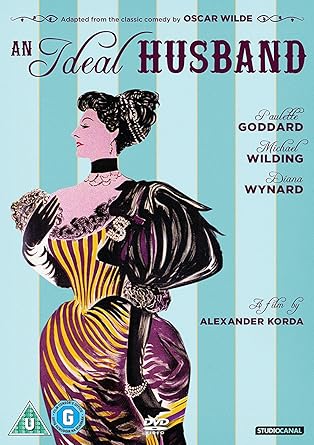

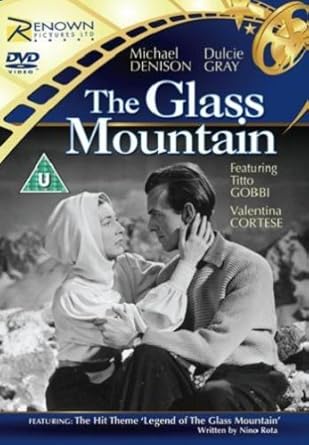
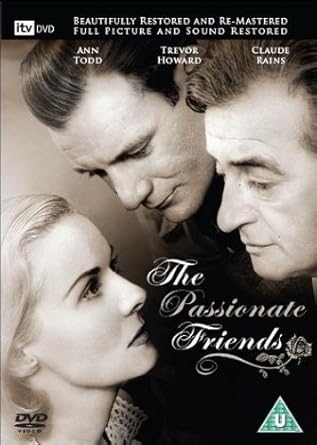


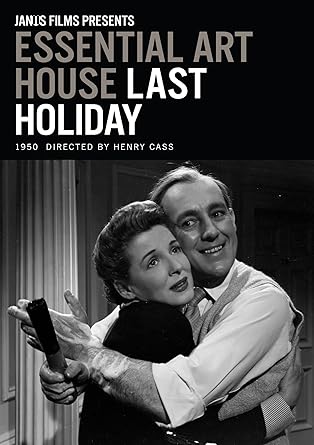


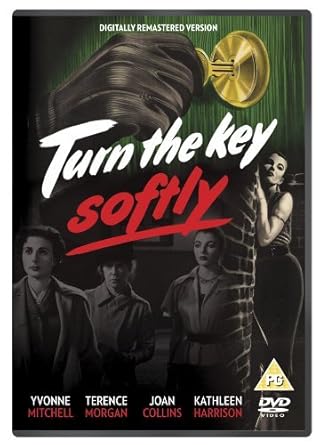








.jpg)












